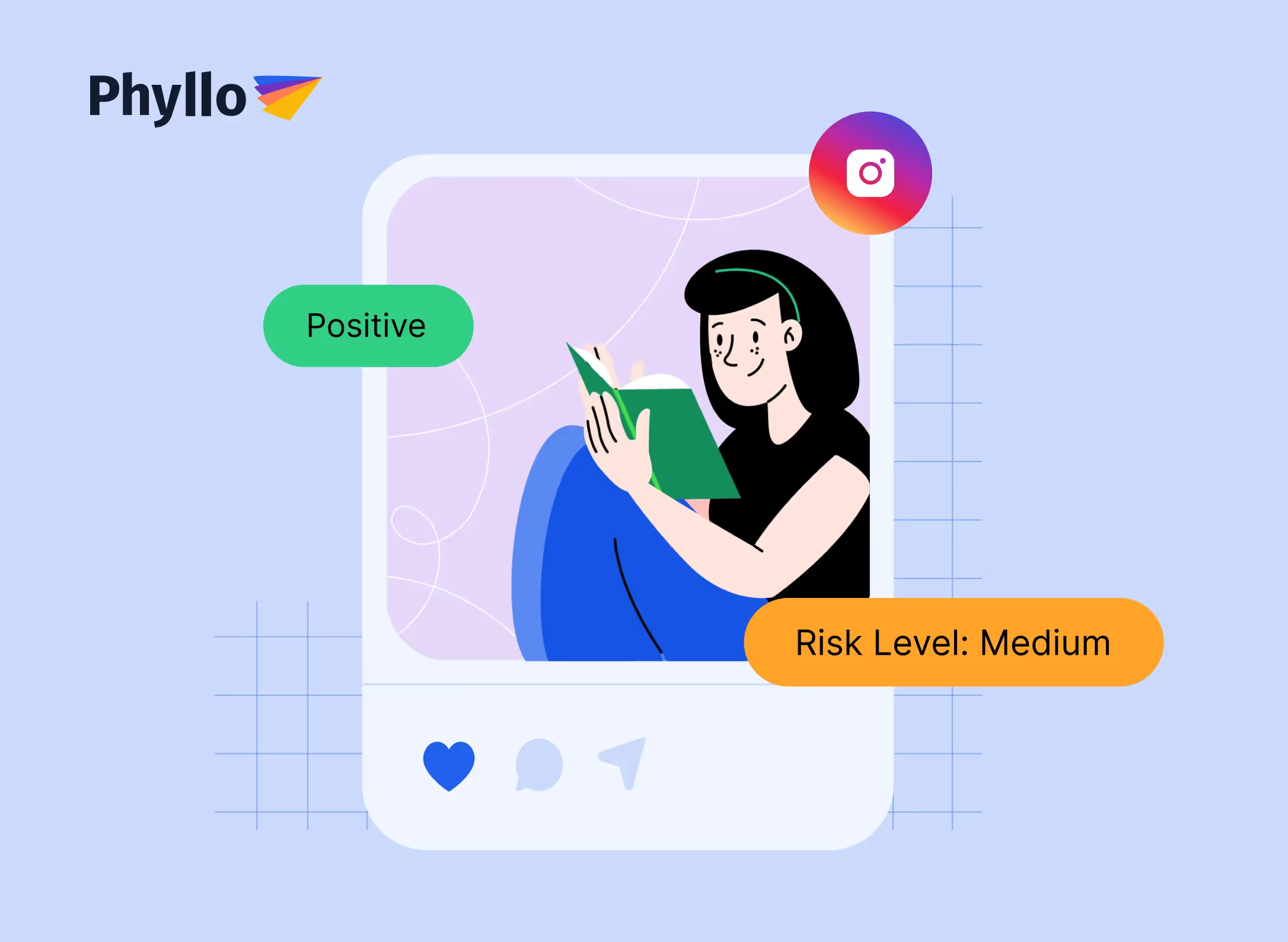Colleges often review applicants' social media profiles to evaluate character, behavior, and overall fit within the campus community. This screening provides insights that aren't always visible in traditional application materials. It also helps institutions identify potential risks, such as offensive or harmful content, to maintain a safe and respectful environment.
Do Colleges Check Social Media? Understanding Why colleges Screen social media
Colleges conduct social media screening as part of their admissions and student life management processes to ensure that students align with the institution's values and culture. This practice helps colleges assess an applicant's character, behavior, and potential fit within their community. After reviewing social media profiles, colleges can gain insights into applicants' personalities, achievements, and behaviors that might not be evident in traditional application materials.
Social media screening is particularly important for maintaining a safe and respectful campus environment. It allows colleges to identify potential red flags, such as hate speech, violence, or other inappropriate behavior, which could pose risks to student safety and the college's reputation.
For instance, colleges might look for signs of bullying, harassment, or discriminatory behavior that could disrupt the campus environment. They also assess how applicants engage with others online, which can indicate their ability to contribute positively to the college community.
Benefits of Social Media Screening for College Placement
Social media screening offers colleges a comprehensive view of applicants beyond traditional application materials. This practice enhances holistic evaluations, checks for authenticity, identifies red flags, and protects the college's reputation. Leveraging social media, colleges can make informed decisions about admissions and ensure that admitted students align with their values and contribute positively to campus life.
- Enhanced Holistic Evaluation: Social media provides a more comprehensive view of applicants beyond traditional application materials, helping colleges make informed decisions about who they admit. This includes assessing an applicant's extracurricular activities, volunteer work, or leadership roles that might not be fully captured in a resume or personal statement.
- Authenticity Checks: Social media profiles can reveal an applicant's true interests and values, ensuring that their self-presentation aligns with their online behavior. This helps colleges identify applicants who genuinely share their values and are likely to thrive in their community.
- Red Flags Identification: Colleges can identify problematic content that might not be captured in traditional background checks, such as unprofessional behavior or discriminatory remarks. This is crucial for preventing potential issues that could arise once a student is admitted.
- Reputation Protection: Screening inappropriate content, colleges can protect their reputation and maintain a positive image. This is essential for attracting future students and maintaining strong relationships with alumni and donors.
How Colleges Use Social Media Screening
Colleges are increasingly incorporating social media screening into admissions and student conduct processes. Admissions officers review public profiles to assess applicants’ character and behavior, while AI tools analyze content for potential risks. Some institutions also monitor students’ social media activity post-admission to ensure compliance with campus policies, emphasizing the need for responsible online behavior throughout a student’s academic journey.
- Public Profile Review: Admissions officers review public social media profiles to assess an applicant's online presence and behavior. This includes looking at platforms like Instagram, Facebook, and Twitter to understand how applicants present themselves publicly.
- AI-Powered Tools: Some colleges leverage AI tools to analyze social media content efficiently and identify potential issues. These tools can quickly scan through large amounts of data to flag problematic content.
- Ongoing Monitoring: Colleges may continue to monitor students' social media activity after admission to ensure compliance with campus conduct policies. This ongoing monitoring helps maintain a safe and respectful environment throughout a student's tenure.
Ethical Considerations in Social Media Screening
Ethical considerations play a central role in how colleges approach social media screening during admissions. Respecting applicants’ privacy by reviewing only public information, avoiding personal biases, and ensuring transparency about the screening process are essential to maintaining fairness and trust. Clear ethical guidelines help colleges balance the benefits of digital screening with the responsibility to protect individual rights and foster an equitable admissions environment.
- Privacy Respect: Colleges should only review publicly available information and avoid accessing private content without consent. This ensures that applicants' privacy rights are respected.
- Bias Avoidance: Decisions should be based on job-related behaviors and characteristics, not personal biases. Colleges must ensure that their screening processes are fair and unbiased.
- Transparency: Colleges should inform applicants that their social media profiles may be reviewed as part of the admissions process. Transparency helps build trust and ensures that applicants are aware of the criteria used in admissions decisions.
Tools for Effective Social Media Screening
Phyllo is a leading provider of social media screening solutions, helping colleges navigate the complexities of online behavior while ensuring compliance with privacy and data protection laws. Here’s how Phyllo can assist:
- AI-Powered Insights: Phyllo’s tools use AI to analyze social media profiles for inappropriate content, ensuring colleges can identify potential red flags efficiently. This includes detecting hate speech, violence, or other harmful behavior.
- Comprehensive, Real-Time Insights: Access up-to-date content from platforms like Instagram, TikTok, YouTube, and LinkedIn. The system reviews not just recent posts but content dating back up to 7 years, scanning text, audio, video, and even overlay captions. This comprehensive approach ensures that colleges have a complete picture of an applicant's online behavior.
- Advanced Content Safety Checks: The platform flags content across key safety categories such as violence, hate speech, and toxic language, supporting custom keyword scanning to assess stances on political or social topics. This helps colleges identify applicants who may pose risks to campus safety or community harmony.
- Informed Decision-Making: Surfacing potential red flags and offering deep insights into a person’s online behavior, Phyllo empowers decision-makers to make safer, more informed calls—whether hiring staff, onboarding volunteers, or admitting students.
Integrating Phyllo into their admissions processes, colleges can create a safer and more inclusive community while protecting their reputation and maintaining high standards of integrity.
Social media screening has become an essential tool for colleges seeking to ensure that their students align with their values and contribute positively to campus life.
Understanding the benefits, methods, and ethical considerations of social media screening, colleges can make informed decisions about admissions and student conduct while protecting their reputation and maintaining a safe learning environment. Tools like Phyllo provide colleges with the insights needed to navigate this complex landscape effectively.
Conclusion:
Social media screening plays a vital role in helping colleges evaluate applicants beyond traditional materials, ensuring they align with the institution’s values and contribute positively to campus life. After carefully reviewing online behavior, colleges can identify potential risks, promote a safe environment, and protect their reputation. When conducted ethically-with respect for privacy, fairness, and transparency-social media screening supports informed admissions decisions and fosters a respectful, inclusive community.
FAQs:
1. Do colleges check applicants’ social media profiles?
Yes, many colleges review public social media profiles to gain additional insights into applicants’ character and behavior, although not all do this routinely.
2. What do colleges look for on social media?
Colleges look for evidence of positive traits like leadership, community involvement, and authenticity, as well as red flags such as hate speech, bullying, illegal activities, or other behaviors that could harm campus safety or reputation.
3. How often do social media reviews impact admissions decisions?
Social media findings can influence decisions positively or negatively. Surveys show a significant portion of admissions officers say social media content has affected their admissions choices.
4. Do colleges access private social media accounts?
No, colleges generally only review publicly available information and do not access private accounts without permission.
5. What tools do colleges use for social media screening?
Some colleges use AI-powered tools to efficiently scan public social media content for potential risks or values alignment.
6. Can social media screening continue after admission?
Yes, some colleges monitor students’ social media activity post-admission to ensure ongoing compliance with campus conduct policies.
7. How do colleges ensure fairness and privacy in social media screening?
Colleges respect privacy by only viewing public content, apply consistent criteria to avoid bias, and strive for transparency about their screening practices.

.avif)









.avif)


.avif)

